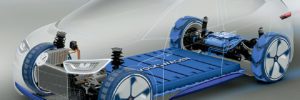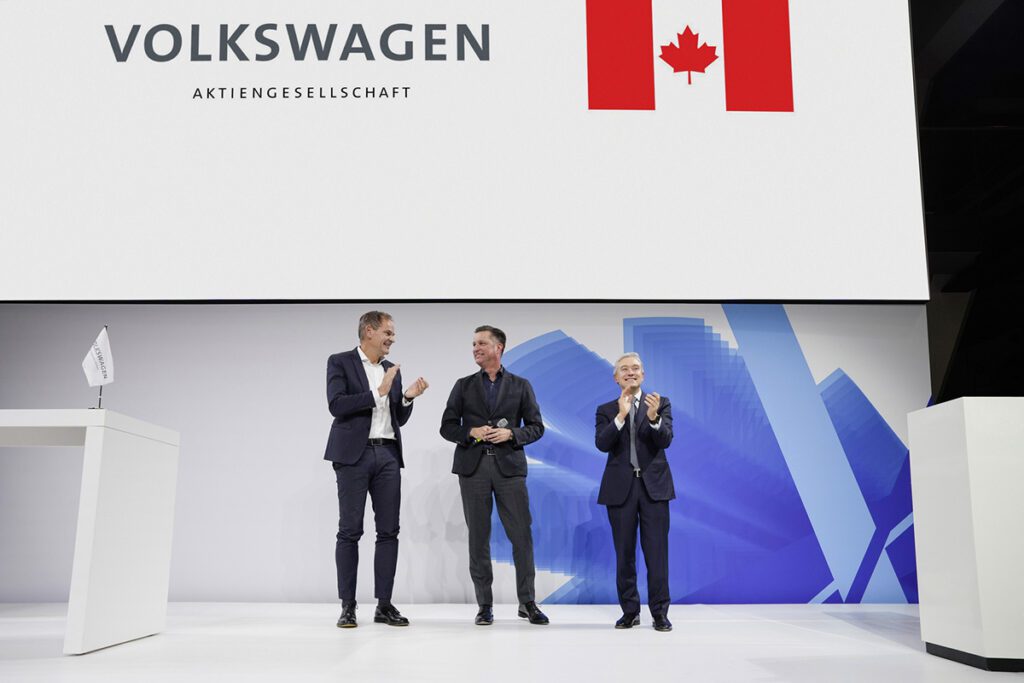
The Volkswagen Group has been flooding the zone with EV-related news of late. Last September, new CEO Oliver Blume revealed a 10-point plan to accelerate the EV transition, and we’re now seeing some concrete steps to make it a reality.
The company recently announced a five-year investment budget of €180 billion ($193 billion), and some two-thirds of that will be devoted to software and electrification. Around 15 big ones will reportedly be invested in battery production and raw material sourcing.
The Group and its battery company PowerCo have selected St. Thomas in Ontario as the site of a new battery gigafactory. VW says Canada offers ideal conditions for cell manufacturing, including supplies of raw materials and wide access to clean electricity. The start of production is planned for 2027.
EVs will be a key part of VW’s strategy to increase its importance in the American market. Subsidiary Scout Motors plans to start producing EVs in South Carolina by the end of 2026. The Group will ramp up assembly of the ID.4 electric SUV in Chattanooga, Tennessee, and will also upgrade its plants in Puebla and Silao, Mexico, to assemble EVs and potentially components such as electric motors.

“We now have the unique opportunity to grow profitably in North America and play a key role in driving the transition to electric mobility there,” said Volkswagen Group CFO and COO Arno Antlitz. “Both [the Ontario and South Carolina] projects are integral building blocks of our ambitious growth program for the entire region. Volkswagen has the right strategy, products and scale to take a strong position in the North American market.”
VW’s software and technology company CARIAD has established a technology hub in the greater Seattle area and Silicon Valley, where over 200 software engineers are working on Volkswagen’s Automotive Cloud, which will “connect the next generations of vehicles from all Group brands like Volkswagen, Audi and Porsche as well as next-generation software in the automated driving and digital experience space.”
The Group says it will introduce some 25 new BEV models in the US market through 2030. “We expect to reach 20% electromobility in new sales from 2025 and are already investing two-thirds in that area,” Antlitz said. “On the other hand, we need to keep combustion engines competitive… that is a double burden.”
Ironically, combustion engines could soon be as useful as dial telephones if VW follows through on its recently-announced plan to bring an affordable EV—priced at around 25,000 euros—to the European market by 2025. Antlitz says he hopes that, by then, new raw material sourcing deals and expanded battery production will enable VW to bring down production costs (of which battery costs represent 40%) enough to hit the 25k target.
Sources: Volkswagen Group, Reuters, Bloomberg, Electrek
from Charged EVs https://ift.tt/tmVyB8N


No comments:
Post a Comment